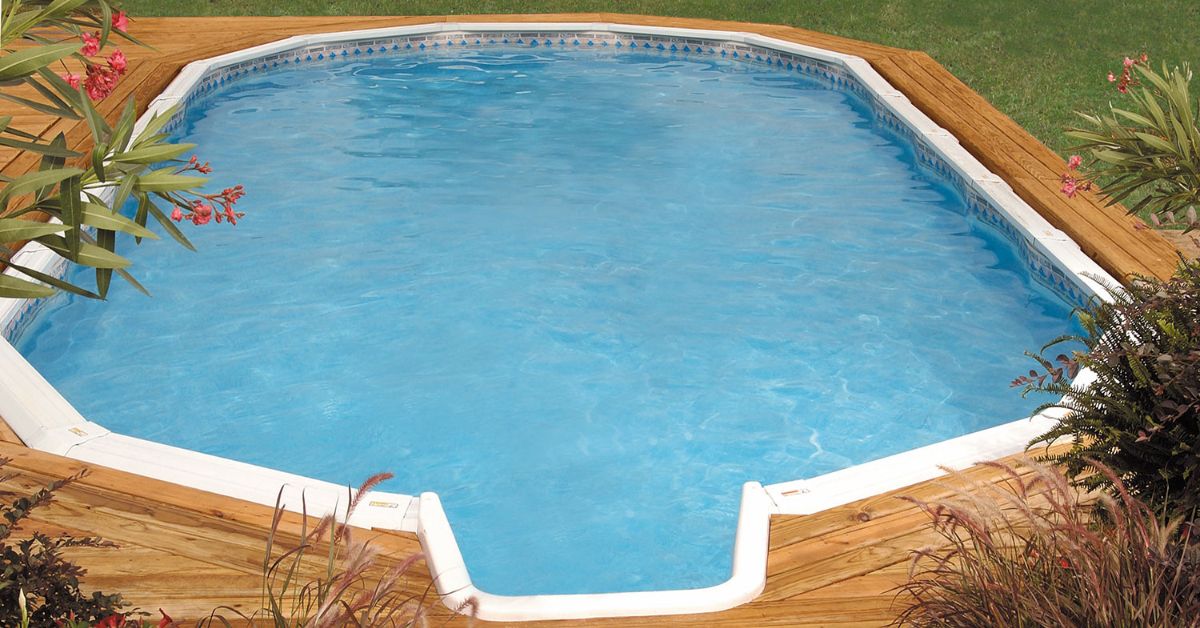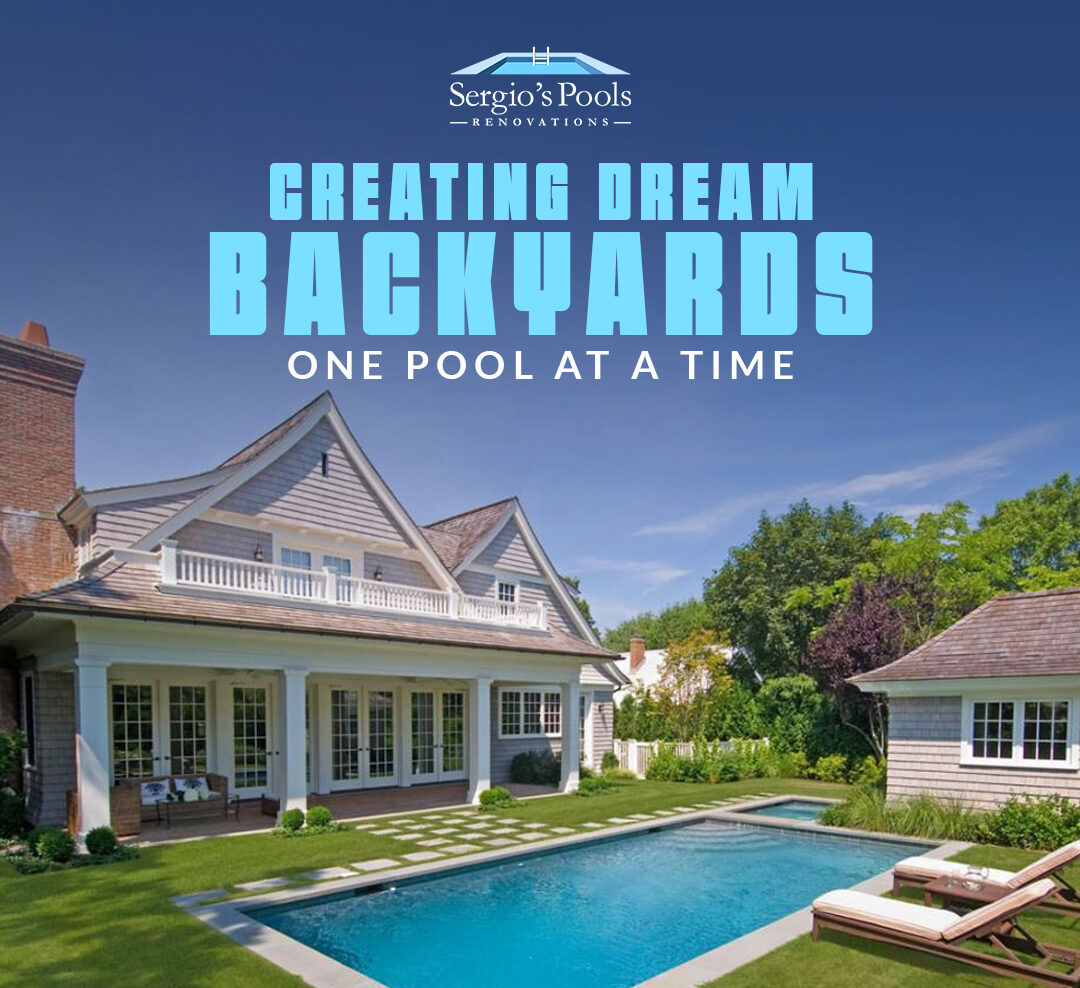When installing any pool, the pool’s lifespan matters the most to the homeowner. It should be this way as well. After all, a lot of effort, finances, time, and effort goes into building a pool, so why should it not last for a while?
However, some aspects can increase or decrease the lifespan of your pool. In the following sections, you will learn about most of these aspects.
There are many kinds of pools, and we will discuss them as well, but the main focus will be on in-ground pools. For a better understanding, types of in-ground pools and their details will be discussed in detail.
On that note, let’s begin our discussion.
What is An Inground Pool?
An inground pool is a fixed installation within the ground, crafted from materials like concrete, fiberglass, or vinyl. Each material offers unique advantages, including durability, versatility in design, and aesthetic appeal.
Homeowners often opt for inground pools to elevate their outdoor living spaces, transforming them into inviting retreats for relaxation and entertainment.
With in-ground pools, homeowners can play more with the customization and make the pool’s presence more aesthetic and complementary to the house. The lifespan of an inground pool can also depend on how it is built and maintained.
Why Does the Lasting of An Inground Pool Matter?
The lasting of an inground pool is important for several reasons. Firstly, it immediately affects your home’s overall cost. A well-maintained pool can increase your house’s value and resale price.
On the other hand, an ignored one may deter potential consumers. Even if the owner doesn’t care much about the financial increase in value, a well-maintained inground pool will be like a scenery to your house that you can always enjoy.
Additionally, the lifespan of your pool influences your lengthy-time period upkeep and protection costs. You can plan and finances by understanding how long your pool will last. The in-ground pool timeline matters a lot, no matter what context you look from.
Importance of Professional’s Suggestions
Seeking guidance from pool professionals may be very important for preserving the excellent lifespan of your inground pool. From regular maintenance duties to primary renovations, experts can provide precious insights and recommendations tailor-made to your pool’s wishes.
Following their recommendation, you can ensure your pool stays in the most helpful situation for years. If you’re searching for a very good pool builder at affordable prices to help you with pool preservation, contact Sergio’s Pool Renovations.
The quality pool renovations Delaware can, without problems, get the services and experience the perks.
Lifespan of Inground Pool
An inground pool’s lifespan is inspired by various factors, together with the materials used in its construction, the diligence of protection routines, and the triumphing environmental conditions. With proper care, a few inground swimming pools can endure for many years, providing enduring entertainment for homeowners.
Conversely, forgetful or harsh environmental elements may necessitate extra frequent upkeep and renovations, potentially shortening the pool’s lifespan. Recognizing the typical lifespan of inground pools empowers homeowners to make knowledgeable choices regarding renovation schedules, enhancements, or replacements.
By information these factors, individuals can proactively cope with issues and enlarge the durability of their pool, ensuring endured pride and price for years yet to come.
Increasing the Longevity of a Inground Pool
- The most common worry of pool owners and the topic of the blog is “How Long Do Pools Last?” Many factors affect a pool’s lifespan.
- First, the pool’s kind and materials utilized throughout creation affect the pool’s lifespan.
- Fiberglass swimming pools are renowned for their durability. They can withstand the test of time and withstand the elements for twenty years or more with minimal protection.
- The construction technique and clean, non-porous floor contribute to their longevity.
- Conversely, while extra low-cost prematurely, vinyl-lined swimming pools have a comparatively shorter lifespan, ranging between 10 and 15 years.
- These swimming pools require periodic liner replacements because of put on and tear through the years.
- Concrete swimming pools are the maximum enduring choice, boasting a lifespan of 25 years or more with the proper upkeep.
- Their strong structure and customizable layout features lead them to protracted-lasting funding, albeit requiring occasional renovation consisting of resurfacing.
- Inground pool shape is said to be a factor that also contributes to the pool’s overall lifespan.
Types of Pools
There are several sorts of inground swimming pools, every with its benefits and issues:
- Concrete pools offer sturdiness, flexibility in format, and lengthy-term expenses. With the proper protection, a concrete pool can remain for 25 years or greater, making it a popular choice for proprietors attempting to find an everlasting addition to their property.
- Fiberglass swimming pools are pre-formed shells hooked up inside the ground, presenting quick setup and occasional renovation. While fiberglass pools may also require fewer repairs than different sorts, they commonly have a shorter lifespan of around 20 years.
- Vinyl liner pools are built with a flexible vinyl membrane that traces the pool form. While those swimming pools are less costly upfront, they require periodic liner replacements and function for 10-15 years.
How Long Does a Concrete Pool Last?
Concrete swimming pools are famous for their sturdiness and toughness, making them a renowned choice among owners seeking a permanent aquatic retreat. When nicely constructed and maintained, a concrete pool can closing 25 years or more.
Unlike other pool types, such as fiberglass, vinyl-lined, or close inground pool, concrete pools are structurally strong and immune to wear and tear. Concrete also gives unprecedented layout flexibility, permitting owners to create custom shapes, sizes, and features to complement their alternatives.
While concrete swimming pools may additionally require periodic preservation, including resurfacing or sealing, their lengthy-time period sturdiness makes them smart funding for those in search of a lasting aquatic oasis.
How Long Do Inground Pools Last?
Weather, usage patterns, and first-class construction can also affect an inground pool’s lifespan. In regions with harsh winters or excessive climate conditions, swimming pools may additionally revel in greater wear and tear, reducing their normal lifespan.
Similarly, regularly used pools or those subjected to heavy masses might also require frequent preservation and maintenance.
More about Inground Pools
Like many forms of pools, there are typically many in-ground pools. Inground swimming pools are available in diverse shapes and sizes, allowing homeowners to customize their outdoor spaces to match their possibilities.
Common inground pool shapes include square, kidney-fashioned, oval, and freeform designs. Each form gives its particular aesthetic attraction and functionality, permitting house owners to create a backyard oasis that reflects their non-public style.
Wrap Up
The lifespan of an inground pool relies upon many elements, which include construction materials, protection practices, and environmental situations. But what truly subjects is how lengthy an owner of a house desires the pool to remain.
If the owner is passionate about keeping the pool intact, then the pool can ultimate for more than one many years and increase the splendor and cost of the house.
Making it manifest is easiest if you know the standard lifespan of the inground pool and invest in everyday protection and renovations. Lastly, this weblog offers the assistance and statistics you want.
Remember to talk with pool professionals for expert advice and guidance tailored to your pool’s specific desires. With proper care and interest, your inground pool can provide a lifetime of leisure for you and your circle of relatives.






